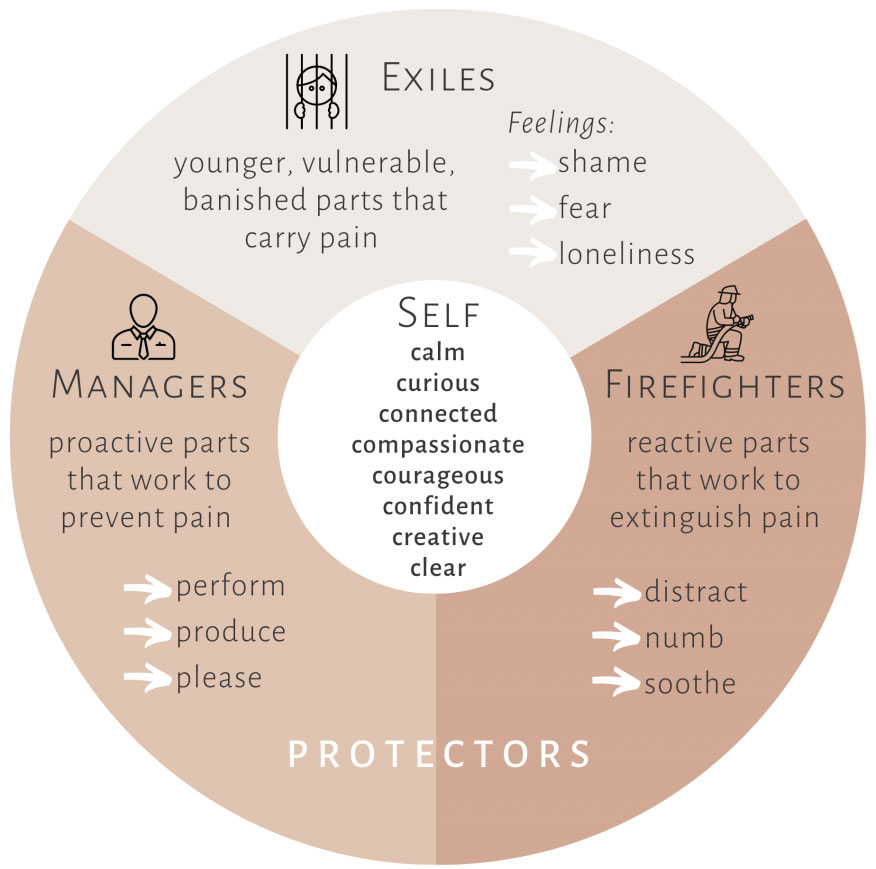What to Expect
IFS is talk therapy in which you work with a therapist to identify and understand the specific sub-personalities or families that make up your internal mental system. Once you identify these parts, the therapist will help you acknowledge your feelings about these suppressed emotions, learn how to release these feelings so you are freer to address the actual problem, and ultimately find more positive ways to manage conflicts on your own. The therapist may suggest certain tools to help you do this, such as relaxation exercises, visualization, keeping a journal, and creating a chart that illustrates the relationship between Self and the different parts of you.
According to the IFS model, parts often play three common roles:
Managers: Manager are protective parts that function to control people’s surroundings and manage emotions and tasks to navigate daily life.
Exiles: Exiles are parts that hold hurt, fear, or shame from early experiences, and they carry the difficult emotions and memories associated with those experiences. Managers aim to keep exiles contained and hidden from conscious awareness to avoid distress and pain.
Firefighters: Firefights are activated when exiles produce overwhelming, painful, or threatening emotions. Firefights aim to inhibit those difficult emotions by any means necessary, such as substance use or binge eating.
To take an example, an exiled part may be the trauma and anger of earlier abuse. These emotions are suppressed by the manager. And the firefighter may be an addiction to alcohol addiction, which distracts the person from facing and re-experiencing those difficult emotions.
IFS also posits that everyone has a core Self, a genuine self, waiting to be accessed. The Self can identify, observe, and help these parts become less extreme, more productive, and coexist effectively.

